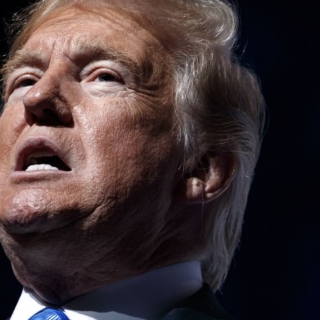


The very data that caused President Donald Trump to fire the head of the Bureau of Labor Statistics because he did not like the July employment report, calling it "rigged," is being taken as serious evidence by Federal Reserve officials of a slowing economy and as a justification for the interest rate cuts Trump wants.
"The latest employment report confirmed some of the signs of fragility and reduced dynamism in the labor market," Fed Governor Michelle Bowman, a Trump appointee, said in a Saturday speech that elaborated on how the latest jobs numbers and revisions to prior months' data validated her concerns about a weakening economy. "I see the risk that a delay in taking action could result in a deterioration in labor market conditions and a further slowing in economic growth."
While signs of a weakening labor market could get Trump his wish for the Fed to cut rates, which he believes would result in lower interest costs on the country's increasing debt load, it also flies in the face of his assertions that his tax cuts and immigration and trade agendas are driving growth higher.
Recent comments from policymakers who had recently been focused on rising inflation, for example, show that news of ebbing job growth in May, June and July has begun shifting their sense of risks facing the economy.
While only Bowman and another Trump appointee, Governor Christopher Waller, have so far advocated for immediate rate cuts, both dissenting against last month's decision to hold rates steady, investors now put a more than 85% probability on a cut at the Fed's September 16-17 session.
That, of course, depends on the data arriving in the meantime, including July's consumer inflation figures on Tuesday and employment data for this month released in early September, both coming from a BLS that Trump has suggested is untrustworthy.
For all its recent shortcomings in data production, BLS has dense internal checks to be sure the figures are not manipulated, while the Fed is attentive to shades of gray and almost always cautious when approaching policy shifts.
Trump late on Monday named E.J. Antoni, chief economist at the conservative Heritage Foundation as the new commissioner, a decision that will be watched with the same intensity in economic and investment circles as his coming choice for a successor to Fed Chair Jerome Powell, given the implications for the integrity of data that can influence interest rates, stock prices and political fortunes.
Fed policymakers in recent comments have noted ways they can supplement and cross-check what comes from the BLS.
Policymakers "look at data produced by statistical government agencies. We also look at a lot of data that's not produced by statistical government agencies. We try to validate what the different data sets are saying, make sure they are telling the same story," St. Louis Fed President Alberto Musalem said last week.
"I'm confident we can continue to do our job well....We're connected to the economy through direct interaction with companies and households all around the country. So in addition to data, we have a very strong impressionistic view of the economy," he said.
Source: Investing.com
President Donald Trump announced a new peace pact between Rwanda and the Democratic Republic of Congo, which he linked to US access to critical minerals. At a meeting in Washington, Trump claimed his ...
A five-hour meeting between Russian President Vladimir Putin and Donald Trump's special envoy, Steve Witkoff, and his son-in-law Jared Kushner, in the Kremlin, failed to produce a peace agreement to e...
US President Donald Trump has hinted that Kevin Hassett, the current chairman of the National Economic Council, whom Donald Trump appointed to the position, is a likely choice from the shortlist of ca...
Vladimir Putin warned that Russia might consider attacking ships of countries supporting Ukraine if the surge in attacks on Moscow's tanker fleet continues, according to local media reports. There ha...
Russian President Vladimir Putin said on Thursday (November 27) that a draft outline of a peace proposal being discussed by the United States and Ukraine could form the basis of a future agreement to ...
US stocks closed higher on Friday (December 5), with the S&P 500 up 0.2%, the Nasdaq up 0.4%, and the Dow Jones Industrial Average up 0.2% as weak PCE data and positive sentiment in Michigan strengthened the likelihood of a 25bps Fed rate cut...
Oil prices edged up nearly 1% to a two-week high on Friday (December 5th) amid growing expectations that the US Federal Reserve will cut interest rates next week, which could boost economic growth and energy demand, as well as geopolitical...
Gold closed around $4,210 an ounce on Friday, near its highest level since late October, paring an earlier rally as a series of US data strengthened the case for an imminent Fed rate cut. Delayed September PCE rose 0.3% month-on-month and 2.8%...
 Private businesses in the US cut 32K jobs in November 2025, following an upwardly revised 47K gain in October, and compared to forecasts of a 10K...
Private businesses in the US cut 32K jobs in November 2025, following an upwardly revised 47K gain in October, and compared to forecasts of a 10K...
 Asia-Pacific stock markets opened lower on Friday, following the sluggish sentiment on Wall Street. In Australia, the ASX/S&P 200 fell 0.17%. In...
Asia-Pacific stock markets opened lower on Friday, following the sluggish sentiment on Wall Street. In Australia, the ASX/S&P 200 fell 0.17%. In...
 European stocks closed higher on Thursday (December 2nd), supported by a rebound in shares of major banks and automakers. The Eurozone STOXX 50 and...
European stocks closed higher on Thursday (December 2nd), supported by a rebound in shares of major banks and automakers. The Eurozone STOXX 50 and...
 Ekonom terkenal Scott Bessent memprediksi bahwa Amerika Serikat kemungkinan akan mengalami pertumbuhan ekonomi yang kuat namun inflasi tetap rendah...
Ekonom terkenal Scott Bessent memprediksi bahwa Amerika Serikat kemungkinan akan mengalami pertumbuhan ekonomi yang kuat namun inflasi tetap rendah...